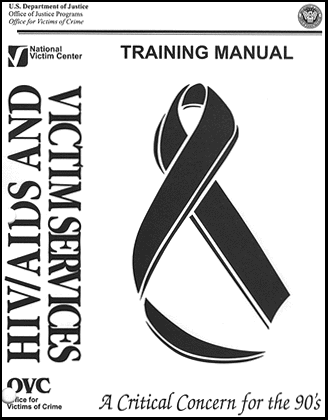




The guide created for each chapter includes: the suggested length of time for each module; the intended learning objectives; suggested training approaches; and the materials needed for each exercise, including optional pre-made overhead transparencies. The training program is designed to involve the audience as frequently as possible to avoid a lecture only format. Several of the exercises include recommendations to shorten the exercise if time is limited. Trainer's are encouraged not to drop the exercises for more time to lecture, instead consider holding the training over several days or weeks.
The first cases of acquired immunodeficiency syndrome (AIDS) were diagnosed in Los Angeles, California, in 1981. It is estimated that in the first ten years of the pandemic, the human immunodeficiency virus (HIV), the causative agent of AIDS, claimed more American lives than the Korean and Vietnam wars combined. This pandemic has struck fear in most Americans. In the beginning, people believed that AIDS was the "gay" disease; over time, we have learned that everyone is at risk. The disease has broken through to the heterosexual population with women and adolescents - now the fastest growing groups to be infected. Fear of the disease, and the stigma attached to it, presents great challenges to the American public.
|